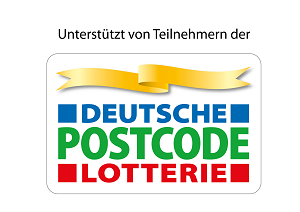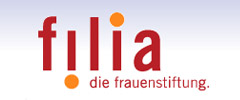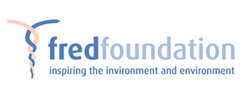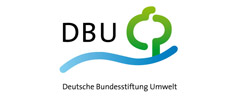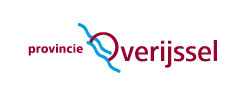Chemical Safety – One of the Priority Problems in Armenia
Press Release by Armenian Women for Health and a Healthy Environment (AWHHE)
18.08.2008 |Chantal van den Bossche
Obsolete pesticides are very serious problem in Armenia and other EECCA countries and WECF has been working with AWHHE and Mama '86 since 1999 on this problem. We brought this as a priority issue for Eastern Europe and EECCA countries on the agenda of the UN POP's negotiations between 1999 and 2002, Although the huge problems have been recognised and investigated there is too little action to remove the dumps and storages safely. It is a very costly and technically complicated operation and can not be accomplished without international financial and technical aid.
WECF's Armenian partner AWHHE issued a press release on August 5 to raise awareness on this subject.
YEREVAN - In Armenia about 300 tons of obsolete
agricultural chemicals are accumulated in the former basic stores. Besides
that, 550 tons of expired pesticides are buried in the burial site of
pesticides which is located on the territory of Erebouni Community of the city
Yerevan, as well as there exist non-registered stocks of obsolete pesticides in
individual farms.
Simultaneously, according to official data, annually 380 tons
of toxic chemicals are imported into Armenia. This amount is a serious
threat to Armenia.
The discussion of this and other problems related to chemical security was
conducted on August 4, 2008 within the framework of a seminar entitled “SAICM
(Strategic Approach to International Chemicals Management) – Global Commitment
to Protection of Human Health and
Environment”. The workshop was organized by the NGO “Armenian Women for Health
and Healthy Environment”/AWHHE/ with an expert support of Olga Speranskaya, the
Head of the Program on chemical safety of EECCA, as well with financial support
of “Barbara Smith” Foundation and IPEN.
The plenary report on basic provisions and priorities of SAICM was presented by Olga Speranskaya. The information about the import, use and storage of toxic chemicals was presented by Karine Esayan, the Head of the Department of Plant Growing and Protection of the Ministry of Agriculture of RA; Artashes Tadevosyan, the assistant-professor of the chair of the Yerevan State University; Lilik Simonyan, an expert of the NGO “Armenian Women for Health and Healthy Environment”.
Special attention was paid to the fact that in most cases chemicals are stored in destroyed buildings, they are not packed and are strewn on the territory of the stores, sometimes they are kept in the open-air, sometimes are scattered on the ground. In latter case the soil, water and air are being polluted.
Non-registered chemicals are considered to be a big problem, as there are no data about their quantity and their nature.In some cases the toxic chemicals are not used according to their purpose, for example, for the treatment of cows and poultry against harmful insects, or lousiness among the people. It's worth reminding, that the chlorine organic toxic chemicals were banned first of all because they are persistent, are decomposed slowly and are able to accumulate in a living body doing harm to health. Toxic chemicals are able to pass from one body to another through the food-chain, for ex. through breast milk from mother to a baby.
This is an actual problem for Armenia, as far as there are results of studies testifying the presence of chlorine organic pesticides in breast milk samples of the Armenian women, - said Elena Manvelyan, the President of AWHHE NGO.
Olga Speranskaya reported that UNEP together with WHO carries out a global monitoring of breast milk for the content of chlorine organic substances and in this monitoring are involved 17 countries. Participant countries from the South Caucasus are Georgia and Azerbaijan. Elena Manvelyan expressed her regret that Armenia has not joined that program and has missed the opportunity to obtain imperative information about the real situation in regard to breast milk contamination.
Sos Hovanesyan, the representative from the Ministry of Health of Armenia, explained the nonparticipation of Armenia by the following, saying that “the procedure of taking breast milk samples in compliance with WHO standards is rather complicated and the means suggested by that program were insufficient”. However, the participants of the workshop did not find this explanation convincing. There was made a conclusion to make an urgent inventory of non registered toxic chemicals and settle the issue of disposal of all obsolete toxic chemicals. The problem of impact of mining and smelting enterprises of Armenia on human health and environment was also included in the list of priorities of chemical safety.
Inga Zarafyan, the President of the Informative NGO “Ecolur” is of opinion that the populated area, the infrastructures of which completely depend on activities of mining or mining and smelting enterprises, should be considered a “hot spot”, as far as the local population and the workers on the limited territory are constantly exposed to toxic substances and heavy metals. The sources of these substances are the tailing dumps and other waste of enterprises.
One of the major problems is the absence of data about the state of human health or the environment, i.e. soil, air and water in these “hot spots'. “We have got only the data obtained during the survey carried out in Kadjaran (Zangezur copper-molybdenum industrial complex), in Alaverdi (Copper smelting enterprise of Alaverdi), in Akhtala (Ore mining and processing enterprise of Akhtala), in Geghanush (Tailing dump of Geghanush), in the village Syunik (Tailing dumps of ore mining and processing enterprise of Kapan), where the people complain about their health and associate it with the impact of those enterprises.
Anahit Aleksandryan, the Head of the Department of Hazardous Substances and Waste Management of the Ministry of Nature Protection of Armenia, announced that the necessary information about hazardous chemical substances, that are used in specific industries and are contained in emissions and waste from those enterprises, can be obtained from the voluminous document, the so called National Profile on Management of Chemical Substances, which is practically ready and by the end of this year will be set in the website of RA Ministry of Nature Protection.
However, as it was mentioned by Lilik Simonyan, it is necessary to have information about the state of age-groups of population based on concrete studies and to make it transparent for the whole society. In his turn, Sos Hovhanesyan expressed an opinion, that under the conditions of free of charge policlinic service it is possible to restore the system of prophylactic and periodic medical examinations and the clinical examination of the revealed patients in the above-mentioned enterprises.
As a result of the workshop a decision was adopted to establish a working group for the implementation of SAICM in Armenia on condition that the civic society will be actively involved in decision making.
Related News
Improve the water network of the Armenian village of Sverdlov by donating one metre of piping for 3 euro 50
Help the villagers of Sverdlov to sustainable and durable access to drinking water
20.12.2012 | WECF
First Water Committee in Caucasus established in village Sverdlov, Lore region, Armenia.
The committee was initiated by the Sverdlov municipality, WECF and Lore Eco Club with the expertise of their partner Kyrgyz Alliance for Water and Sanitation (KAWS) and the Community Drinking Water Users Union from Kyrgyzstan in early March
09.08.2010 | Anna Samwel
Armenian partner: Uranium exploration plans provoke fears
“One day we’ll go to sleep and we won’t wake up.” Report from the website of WECF's Armenian partner Ecolur
27.12.2008 | ECOLUR I Arpi Harutiunian
Major threat to Lake Sevan Armenia - WECF sent letter of concern
Strategic stock of fresh water for Armenian population is threatened by mining industry
15.10.2008 | Chantal van den Bossche
Chemical Safety – One of the Priority Problems in Armenia
Press Release by Armenian Women for Health and a Healthy Environment (AWHHE)
18.08.2008 | Chantal van den Bossche


















